What it's like to perform 'La traviata' live for an audience in the age of coronavirus
Teatro Real in Madrid is presenting a socially distanced "La traviata."
In the final scene of Verdi's "La traviata," Alfredo returns to his beloved Violetta, who is dying, with a wracking cough. Typically in this moment, the two singers run to each other in a passionate embrace after having been wrenchingly separated.
But onstage at the Teatro Real in Madrid, Spain, this month, when Alfredo runs towards Violetta "she puts her hands up, as if to say, 'Don't come near me, I'm going to get you sick,'" explained Michael Fabiano, one of four tenors taking on the role for this run.
Live performances have been canceled across the globe in the midst of the coronavirus pandemic, leaving solo artists -- many of whom are freelancers without a steady salary -- out of work. But in Madrid, Teatro Real spent weeks planning out how to keep the music alive, resulting in this remarkable, socially distanced production.
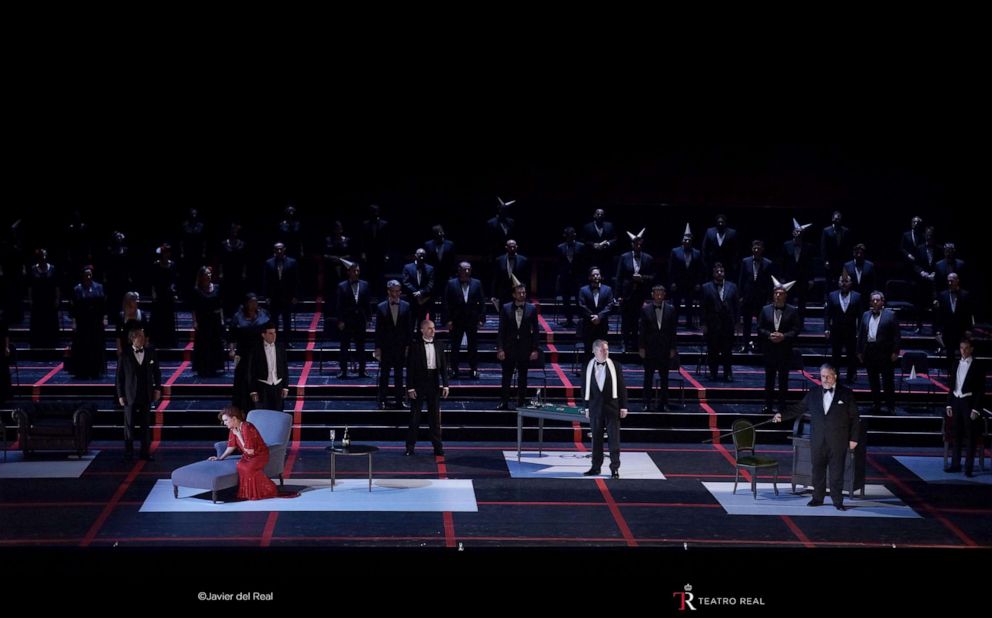
The audience seating capacity is limited to 50%, or 869 seats, and the audience has to go through temperature checks and use hand sanitizers and masks. The orchestra has been divided in half, with each half playing for three consecutive days on rotation, over 27 shows.
Fabiano and Matthew Polenzani, both American tenors, join the rotating cast of international singers (American Lisette Oropesa will be singing Violetta later this month) and kicked off performances last week.
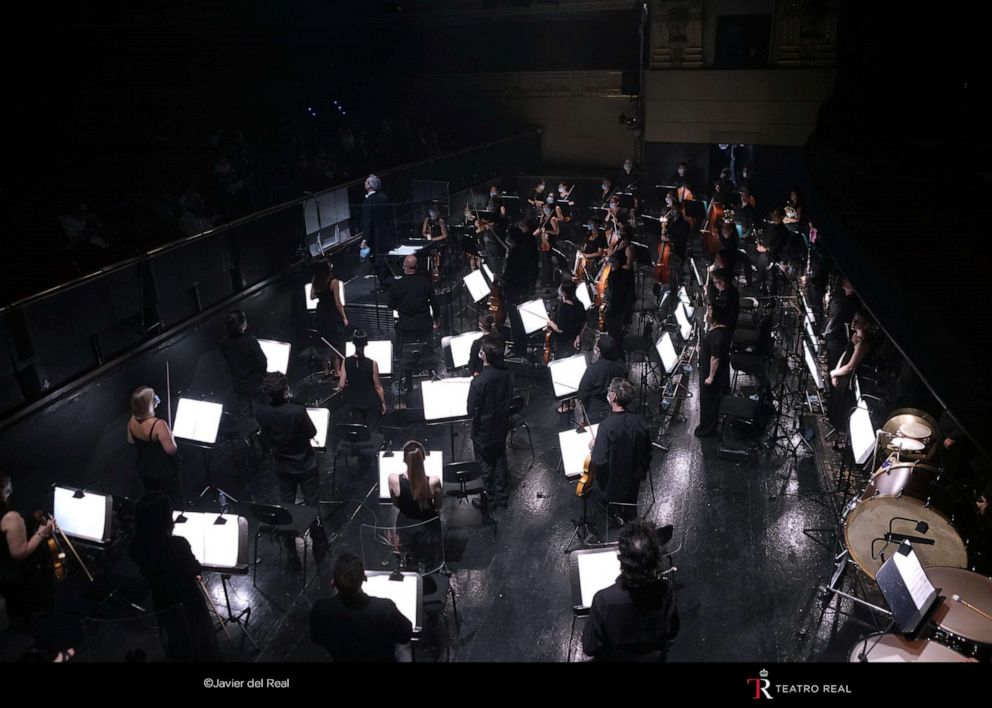
The stage is fairly stark for this production set in a more modern mid-20th century, with the floor delineated into 2-by-2 meter squares.
"When everyone is onstage, you have to stay in your box," Polenzani, who is also singing Alfredo, told ABC News. "Only if there are one or two of you on the stage can you move around, but even then, you always have to keep one box between you and your colleague."
"La traviata," one of the world's most frequently performed operas, is a tragic romance that usually features embracing, kissing, dancers, a father grabbing his son and one of modern history's most famous drunken party choruses -- and is also, ultimately, the story of a woman dying of an infectious disease.
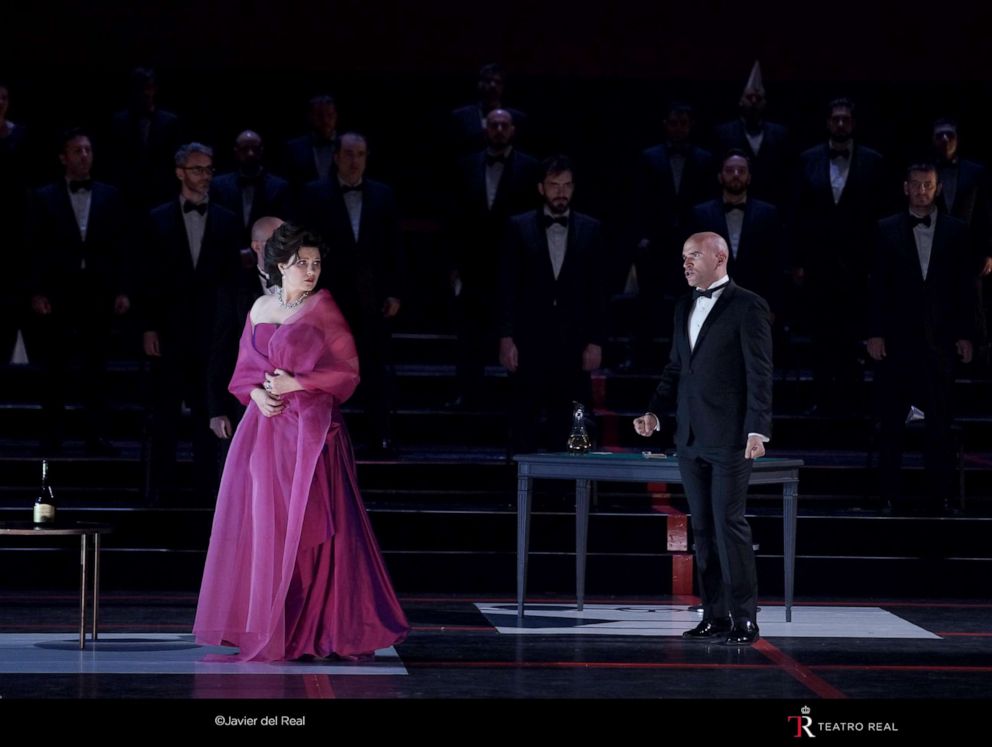
"There are times when I really feel like I need to be in contact with Violetta, especially in the first duet, when we're trying to show there is something special between these two people," Polenzani admitted over email. But, he wrote, "In other ways, a socially distanced production kind of works with this opera. We're playing that she's sick, and doesn't want to get Alfredo sick, so she's keeps him at a distance to protect him. That's also something very loving and selfless, and helps promote the idea that they love each other and need each other, even though we can't see them hug and kiss."
As much as performers are taught to separate real life from onstage, it's impossible with this, both singers said.
"I lost it on opening night in the last two minutes of the show. Let me just be blunt," Fabiano said, explaining he was thinking of people he knew who died of COVID.
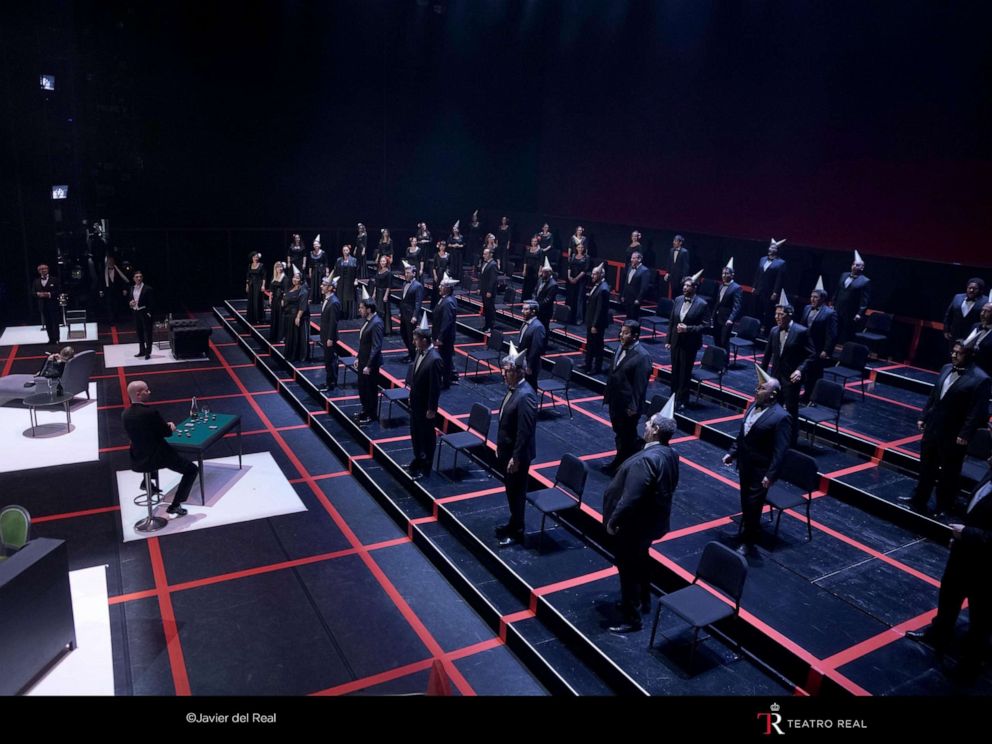
"I make a wager that there are members in the audience the other night that have had that experience, where they could not hug or kiss their loved ones who are either sick or ultimately passed away, and to know that Violetta could not be in my arms ... that's hard," he said.
Polenzani, who said he hopes it can help people cope, wrote: "We want the audience to forget the world we're living in, and step into someone else's shoes for a little while -- and hopefully we'll help them open the door to new chambers of the heart that they hadn't explored yet, or hadn't been in for a long time, and needed to be aired out, as it were."
Polenzani said deciding to perform was "not an easy decision" that he "agonized" about in discussions with his wife and agent, "as it is entirely possible this could be my last job this year." That Europe has handled containment of coronavirus better than the U.S. helped him agree to sing.
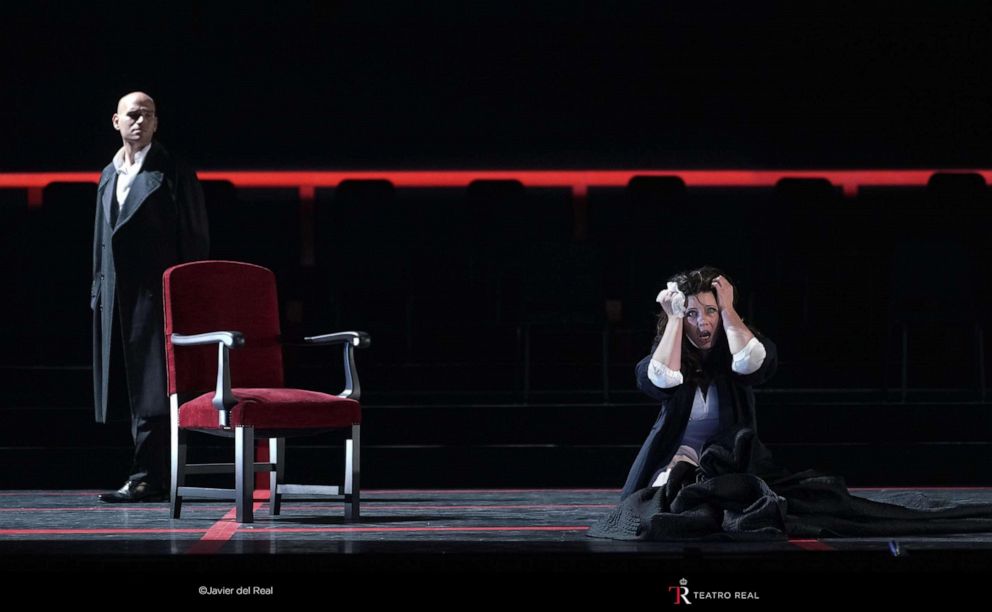
For Fabiano, too, seeing Europe's handling of the virus influenced his decision. He said he's becoming increasingly frustrated with what he sees as a lack of leadership from American arts institutions, which have largely canceled performances, leaving the musicians facing months without pay, without sufficient support, he said, from the American Guild of Musical Artists, the union that represents opera performers.
In response to claims of a lack of support, AGMA National Executive Director Len Egert told ABC News in a statement: "That's simply not true. AGMA has been working around the clock since March to secure and maintain the maximum contractual payments and employer-provided benefits possible -- including crucial health coverage -- for our 7,000+ members as work has been cancelled due to the pandemic."
Egert added that the union has been providing information and resources to members as well as reaching out individually. "If any members feel they haven't been supported by their union, they should reach out to AGMA immediately. Helping to maintain the health and well-being of our members has been our main priority throughout this pandemic," Egert said.
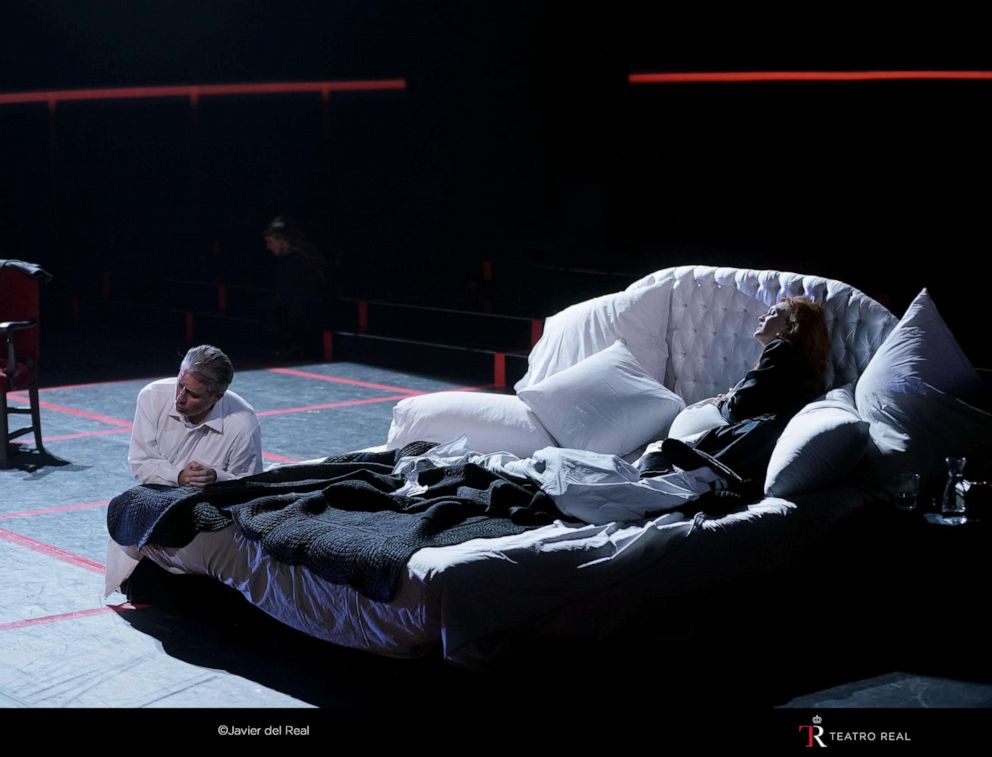
In terms of opera companies, Fabiano said, while many are streaming past performances, "we don't get a dime" from that. And otherwise, he said, there's a lack of transparency or obvious proactivity from American opera companies about plans to figure out safe, alternate ways to function.
"We should be the pioneers of new ideas right now, not behind. It shouldn't be the tech world; it shouldn't be other industries like that," Fabiano said. "It should be the arts being the pioneers of new ideas in this critical moment."
Teatro Real's "La traviata" is running live through July 29 and being broadcast live, worldwide, on July 15 at 8 p.m. local time (2 p.m. ET) on the theater's streaming platform.




